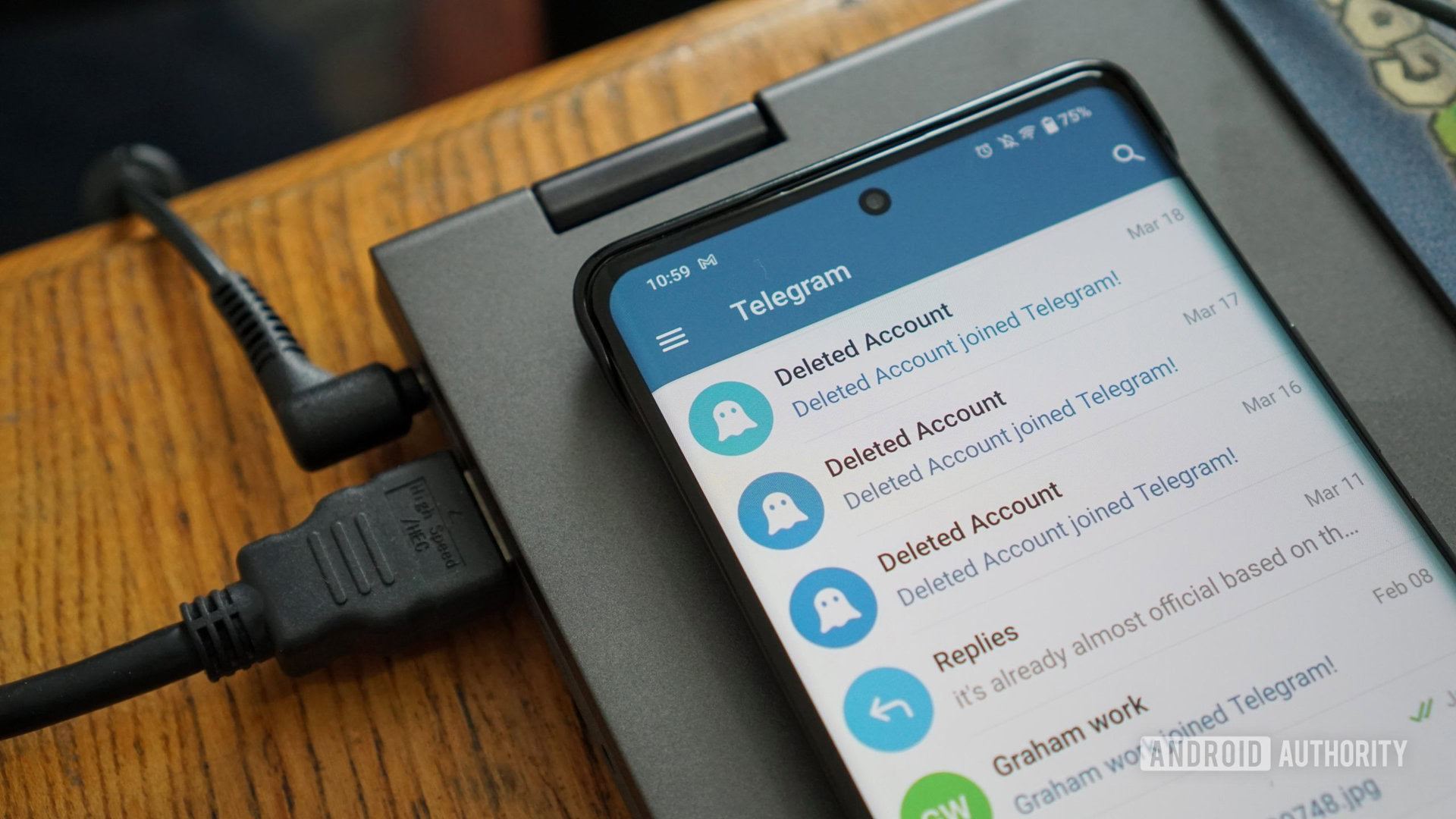Telegram Controversy: The Unfiltered Truth You Need To Know About
Telegram has always been at the center of heated debates, but what exactly is this controversy all about? As one of the most popular messaging apps globally, Telegram offers a platform for millions of users to communicate, share files, and even build bots. However, beneath its sleek interface lies a storm of controversies that have sparked discussions worldwide. If you’ve been wondering why Telegram is often criticized, this article dives deep into the unfiltered truth behind the app’s controversies.
From data privacy concerns to allegations of harboring illegal content, Telegram’s reputation has taken a rollercoaster ride. But is it really as bad as people make it out to be? In this article, we’ll explore the facts, myths, and everything in between. Whether you’re a loyal Telegram user or just curious about its impact, this is your ultimate guide to understanding the Telegram controversy.
Let’s face it, in today’s digital age, communication platforms are under constant scrutiny. Telegram, with its promise of end-to-end encryption and open-source code, seemed like a breath of fresh air. Yet, the controversies surrounding it have raised eyebrows and sparked debates among tech enthusiasts, policymakers, and everyday users. So, buckle up, because we’re about to break it all down for you!
- Jackerman Video The Ultimate Guide To Mastering The Viral Sensation
- Alanna Masterson Relationship The Inside Scoop On Love Life And Everything In Between
What is Telegram Controversy All About?
Telegram controversy revolves around several key issues that have been debated for years. At its core, Telegram is a messaging app that boasts features like encrypted chats, cloud storage, and customizable bots. However, these very features have become double-edged swords, sparking debates about privacy, security, and misuse. Let’s take a closer look at the main points of contention:
- End-to-End Encryption: While it protects user privacy, it also shields malicious actors from detection.
- Open-Source Code: Though transparency is a good thing, it can also be exploited by hackers.
- Illegal Content: Telegram has been accused of hosting extremist groups and facilitating the spread of harmful material.
These issues have led to Telegram being both praised and criticized by different factions. On one hand, privacy advocates applaud its commitment to user data protection. On the other hand, governments and law enforcement agencies argue that it provides a safe haven for criminals. It’s a complex situation, and we’ll delve deeper into each aspect in the sections below.
Understanding Telegram’s Privacy Features
One of the biggest selling points of Telegram is its robust privacy features. The app offers end-to-end encryption for its "Secret Chats," ensuring that only the sender and recipient can access the messages. This level of security has made Telegram a favorite among privacy-conscious users. But as with any technology, there’s a downside.
- Melina Goranssen The Rising Star Taking The World By Storm
- Is Shaq Married The Untold Story Behind The Big Diesels Love Life
How End-to-End Encryption Works
End-to-end encryption ensures that messages are encrypted on the sender’s device and decrypted only on the recipient’s device. This means that even Telegram itself cannot access the content of these chats. While this is great for protecting user data, it also means that law enforcement agencies cannot access these messages during investigations. This has led to concerns about Telegram being used for illegal activities.
For example, a study by cybersecurity experts revealed that several extremist groups have used Telegram to communicate and coordinate their activities. This has put Telegram in a difficult position, as it tries to balance user privacy with the need for public safety.
Telegram and Illegal Content
One of the most controversial aspects of Telegram is its association with illegal content. The app has been accused of hosting extremist groups, child exploitation material, and other forms of harmful content. While Telegram has taken steps to combat this, the issue remains a significant concern for many.
Steps Telegram Has Taken
Telegram has implemented several measures to address the issue of illegal content. These include:
- Automated detection systems to identify and remove harmful content.
- Collaboration with law enforcement agencies to take down illegal channels.
- Reporting tools for users to flag suspicious content.
Despite these efforts, the sheer volume of content on Telegram makes it difficult to monitor everything. This has led to criticism from governments and advocacy groups who argue that Telegram needs to do more to ensure a safer platform.
The Open-Source Debate
Telegram’s open-source code is another point of contention in the controversy. While transparency is generally seen as a positive attribute, it can also be a double-edged sword. By making its code publicly available, Telegram allows developers to audit and improve its security. However, it also means that malicious actors can study the code to find vulnerabilities.
Pros and Cons of Open-Source Code
Here’s a quick breakdown of the pros and cons:
- Pros: Increased transparency, community-driven improvements, and faster bug fixes.
- Cons: Potential for exploitation by hackers, difficulty in maintaining security standards.
Telegram’s founder, Pavel Durov, has defended the decision to go open-source, arguing that it fosters trust and collaboration. However, critics point out that it can also lead to unintended consequences, such as the creation of malicious software based on Telegram’s code.
Government Bans and Restrictions
Several governments around the world have taken action against Telegram, citing concerns over illegal content and national security. Countries like Russia, Iran, and India have either banned or restricted Telegram’s operations. These bans have sparked debates about censorship, free speech, and the role of tech companies in society.
Why Governments Ban Telegram
There are several reasons why governments choose to ban or restrict Telegram:
- Concerns over illegal activities being facilitated on the platform.
- Resistance to government demands for backdoor access to encrypted communications.
- Political motivations, such as controlling dissent and suppressing opposition voices.
While some governments argue that these bans are necessary for public safety, others see them as an infringement on civil liberties. The debate continues as more countries weigh the pros and cons of regulating messaging apps like Telegram.
Public Perception of Telegram
Public perception of Telegram varies widely depending on who you ask. Privacy advocates see it as a champion of digital rights, while critics view it as a haven for illegal activities. This divergence in opinions reflects the complexity of the issues surrounding the app.
What the Numbers Say
According to a survey conducted by a leading tech research firm, 65% of users believe that Telegram prioritizes user privacy over government demands. However, 35% of respondents expressed concerns about the app’s association with illegal content. These numbers highlight the mixed feelings that Telegram evokes among its user base.
Interestingly, younger users tend to be more forgiving of Telegram’s controversies, citing its innovative features and commitment to privacy. Older users, on the other hand, are more likely to be skeptical, often influenced by media reports and government warnings.
Telegram’s Response to Criticism
Telegram has not shied away from addressing the controversies surrounding its platform. In fact, the company has been proactive in responding to criticism and implementing changes to improve its service. Here’s how Telegram has tackled some of the key issues:
Addressing Privacy Concerns
Telegram has consistently emphasized its commitment to user privacy. The app’s founder, Pavel Durov, has publicly stated that Telegram will never compromise on its encryption standards, even if it means facing government backlash. This stance has earned Telegram praise from privacy advocates, but it has also fueled tensions with authorities.
Tackling Illegal Content
Telegram has taken several steps to combat illegal content on its platform. These include:
- Hiring additional moderators to review flagged content.
- Implementing machine learning algorithms to detect harmful material.
- Working with international organizations to develop best practices for content moderation.
While these measures have shown some success, Telegram acknowledges that there is still more work to be done. The company remains committed to creating a safer and more secure platform for its users.
The Future of Telegram
As Telegram continues to evolve, it faces both opportunities and challenges. The app’s growing popularity, especially in regions with strict internet censorship, highlights its potential as a global communication platform. However, the controversies surrounding it mean that Telegram must navigate a delicate balancing act between privacy and safety.
Emerging Trends
Here are some trends that could shape the future of Telegram:
- Increased focus on AI-driven content moderation to improve accuracy and efficiency.
- Expansion into new markets, particularly in developing countries where internet access is growing.
- Development of new features to enhance user experience while maintaining privacy standards.
Telegram’s ability to adapt to these trends will be crucial in determining its long-term success. The company must continue to innovate while addressing the concerns of its users and stakeholders.
Impact on Society
The impact of Telegram’s controversies extends beyond the app itself, influencing broader discussions about technology, privacy, and governance. As more people rely on digital platforms for communication, the need for responsible tech practices becomes increasingly important.
Key Takeaways
Here are the key takeaways from our exploration of Telegram’s controversies:
- Telegram’s commitment to privacy has made it a favorite among users but also a target for criticism.
- Illegal content remains a significant issue, despite Telegram’s efforts to address it.
- The debate over government regulation of tech companies is far from over.
As society continues to grapple with these issues, Telegram’s role in shaping the future of digital communication cannot be ignored.
Final Thoughts
In conclusion, Telegram’s controversies are a reflection of the challenges faced by modern communication platforms. While the app offers unparalleled privacy and innovation, it also raises important questions about accountability and responsibility. As users, it’s up to us to weigh the pros and cons and make informed decisions about our digital interactions.
I encourage you to share your thoughts in the comments below. Do you think Telegram is doing enough to address its controversies? Or do you believe that more needs to be done? Your voice matters, and together we can shape the future of digital communication.
Don’t forget to share this article with your friends and family. Knowledge is power, and staying informed is the first step toward a safer digital world!
Table of Contents
- What is Telegram Controversy All About?
- Understanding Telegram’s Privacy Features
- Telegram and Illegal Content
- The Open-Source Debate
- Government Bans and Restrictions
- Public Perception of Telegram
- Telegram’s Response to Criticism
- The Future of Telegram
- Impact on Society
- Final Thoughts
- Is Shaq Married The Untold Story Behind The Big Diesels Love Life
- Alice Rosenblum Porn Leaks The Untold Story You Need To Know

The Telegram controversy What you need to know Android Authority

The Telegram controversy What you need to know Android Authority

The Telegram controversy What you need to know Android Authority